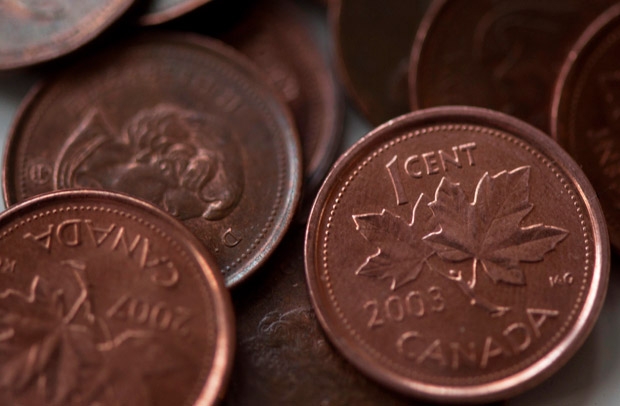TORONTO- The last Canadian penny will be made today at the Royal Canadian Mint facility in Winnipeg.

It was five weeks ago that Ottawa announced one-cent coins will no longer be produced, a move that will save the government 11-million dollars a year.
The value of pennies have fallen so much over the years, they cost more to make than they’re worth.
Although Canadian pennies will no longer be manufactured, they will be accepted in cash transactions for as long as Canadians hold on to them.
As Canada prepares to say goodbye to the penny, Global News looks at the numbers behind the copper coin.

Get daily National news
1858 – The year the first penny was struck, in England, during Queen Victoria’s reign.
2,401,506 – The number of pennies produced by the Royal Canadian Mint in 1908.
486,200,000 – The number of pennies produced by the mint in 2010.
30 – The estimated number, in billions, of pennies that are in circulation today.
95.5 – The percentage of copper used in the first mintage (coins produced by a mint) of pennies from 1908 to 1920.
1.45 – The thickness, in millimetres, of today’s circulating penny.
5.67 – How many grams the first penny in circulation weighed.
2.35 – How many grams today’s pennies weigh.
1967 – The year that the only change in appearance occurred to the Canadian penny. Instead of the traditional maple leaf design, the commemorative coin featured a rock dove in flight, in celebration of Canada’s Centennial.
11 – The millions of dollars that taxpayers will save by killing the penny.
2 – The number of maple leaves, on the same twig, stamped on the modern penny.
1.6 – The cost, in cents, it takes to produce just one modern-day penny.
- Former Liberal cabinet minister Marco Mendicino not running for re-election
- China slams Canada’s ‘double standards’ on human rights after sanctions laid
- Syrian refugee family reflects on nearly a decade in Canada: ‘A better future’
- Canada primed for more severe wildfire days, driven by dry forest fuel: Study







Comments